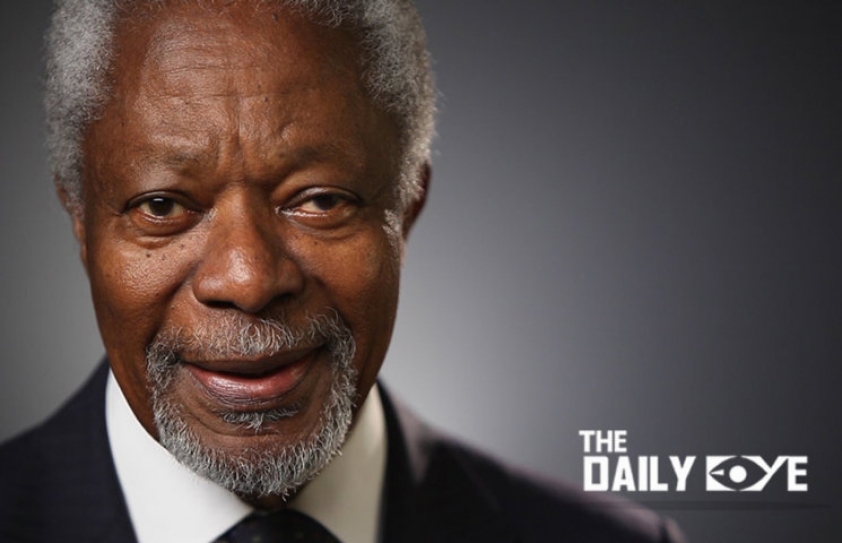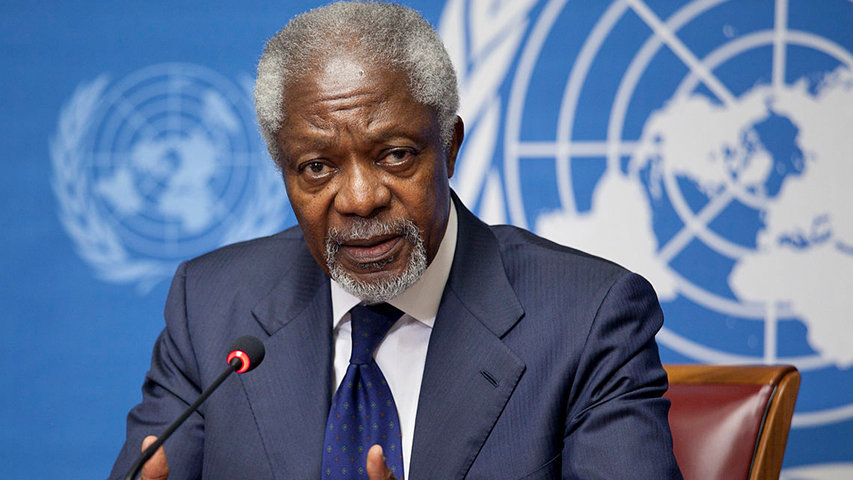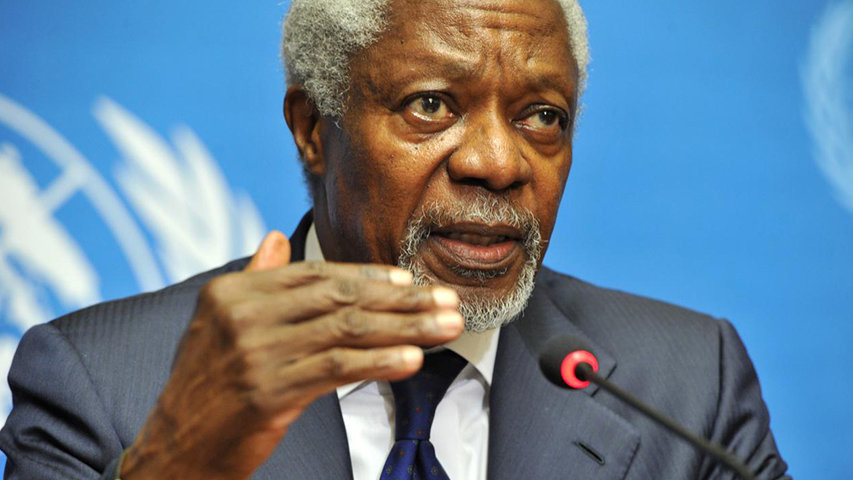
Kofi Annan: The Legacy of a Champion of Peace comes to an End
by Yash Saboo August 21 2018, 3:22 pm Estimated Reading Time: 2 mins, 59 secsThe former United Nations secretary general Kofi Annan died at the age of 80 on Saturday after a short illness. The secretary general of the United Nations is charged with the unenviable duty of safeguarding international peace and security. The Ghanaian brought strong moral convictions, careful judgment and a quiet determination to the task of demonstrating that the secretary general’s post is relevant to the search for solutions to some of the more acute problems confronting the international community.
He died in hospital in Bern, Switzerland in the early hours of Saturday with his wife, Nane, and three children Ama, Kojo, and Nina, by his side. He had retired to Geneva and later lived in a Swiss village. His foundation issued a statement on his Twitter account on Saturday that described him as a “global statesman and deeply committed internationalist who fought throughout his life for a fairer and more peaceful world”.

The Rahnuma
Annan was the seventh secretary-general and served for two terms between 1997 and 2006. He was awarded the Nobel peace prize for his humanitarian work jointly with the UN in 2001.
He was elected to the office in 1996 at a time when the world body’s peacekeeping operations were overstretched, the vital US commitment to the UN was dangerously low and there was a widespread feeling that the UN had lost its way. A likable and popular choice as secretary-general, Annan was a firm believer in multilateral solutions, but also recognized that the UN had to be revitalized and streamlined, and its purposes redefined to respond to the challenges of globalization.
As Secretary-General, Annan sought to assert the U.N.’s authority as the ultimate arbiter of legitimacy and legality in international affairs. The paradox of that authority, however, is that it is entirely derived from the sovereign powers over which it is meant to hold sway. Annan’s insistence that the U.N. could not be blamed for its failures, but that it should get credit in the event of success, failed to resolve that paradox, reported The New Yorker.

Global Public Policy Watch
As Secretary-General, he resisted the temptation to make any more of the false promises of protection that the U.N. had repeatedly betrayed on his watch at peacekeeping, and for this, he was hailed as a reformer. But his attempt to recast the U.N.’s role as an international legal authority meant limiting its legitimacy to nothing more, nor less, than the Security Council’s seal of approval. And the contradictions of this legalistic position came to a head in the run-up to the Iraq War. When the United States made its case for overthrowing Saddam Hussein on the basis of Saddam’s refusal to comply with past Security Council resolutions, Annan was caught in a bind, helping to steer the Security Council into granting legitimacy to a war that he and most of the U.N.’s member states considered illegitimate.
Today, the world mourns the passing away of a great diplomat, moral leader and a champion of peace. Following the crackdown on ethnic Albanians in Kosovo, he had written: “For at the end of the 20th century, one thing is clear: A United Nations that will not stand up for human rights is a United Nations that cannot stand up for itself.”
Let's hope his words and ideals act as a guiding force for world leaders and international organizations in present times, when conflict and killing are everyday headlines. May he rest in peace.





-173X130.jpg)
-173X130.jpg)
-173X130.jpg)
-173X130.jpg)

_(7)-173X130.jpg)
-173X130.jpg)